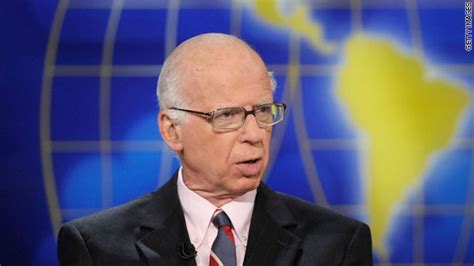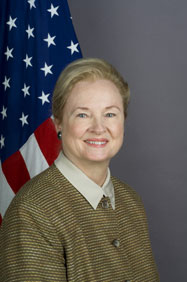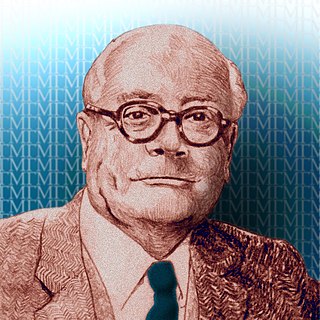A Quote by Peter Drucker
The postwar [WWII] GI Bill of Rights - and the enthusiastic response to it on the part of America's veterans - signaled the shift to the knowledge society. Future historians may consider it the most important event of the twentieth century. We are clearly in the midst of this transformation; indeed, if history is any guide, it will not be completed until 2010 or 2020. But already it has changed the political, economic and moral landscape of the world.
Quote Topics
America
Any
Bill
Bill Of Rights
Century
Changed
Clearly
Completed
Consider
Economic
Enthusiastic
Event
Future
Guide
Historians
History
Important
Indeed
Knowledge
Landscape
May
Midst
Moral
Most
Part
Political
Response
Rights
Shift
Society
The Most Important
Transformation
Twentieth
Twentieth Century
Until
Veterans
Will
World
WWII
Related Quotes
Future historians, I hope, will consider the American fast food industry a relic of the twentieth century--a set of attitudes, systems, and beliefs that emerged from postwar southern California, that embodied its limitless faith in technology, that quickly spread across the globe, flourished briefly, and then receded, once its true costs became clear and its thinking became obsolete.
The world has changed far more in the past 100 years than in any other century in history. The reason is not political or economic but technological-technologies that flowed directly from advances in basic science. Clearly, no scientist better represents those advances than Albert Einstein: TIME's Person of the Century.
Our example - and commitment - to freedom has changed the world. But along with the genius of our Declaration of Independence, our Constitution, and our Bill of Rights, is the equal genius of our economic system. Our Founding Fathers endeavored to create a moral and just society like no other in history, and out of that grew a moral and just economic system the likes of which the world had never seen. Our freedom, what it means to be an American, has been defined and sustained by the liberating power of the free enterprise system.
I am among those who believe that our Western civilization is on its way to perishing. It has many commendable qualities, most of which it has borrowed from the Christian ethic, but it lacks the element of moral wisdom that would give it permanence. Future historians will record that we of the twentieth century had intelligence enough to create a great civilization but not the moral wisdom to preserve it.
Social historians of the future no doubt will be amused by the fact that we late-twentieth-century Americans found it acceptable to discuss publicly in detail the most intimate aspects of personal life, while maintaining an almost prudish reserve concerning the political significance of family life.
Film is more than the twentieth-century art. It's another part of the twentieth-century mind. It's the world seen from inside. We've come to a certain point in the history of film. If a thing can be filmed, the film is implied in the thing itself. This is where we are. The twentieth century is on film. You have to ask yourself if there's anything about us more important than the fact that we're constantly on film, constantly watching ourselves.
Events are the ephemera of history; they pass across its stage like fireflies, hardly glimpsed before they settle back into darkness and as often as not into oblivion. Every event, however brief, has to be sure a contribution to make, lights up some dark corner or even some wide vista of history. Nor is it only political history which benefits most, for every historical landscape - political, economic, social, even geographical - is illumined by the intermittent flare of the event.
Given that the nineteenth century was the century of Socialism, of Liberalism, and of Democracy, it does not necessarily follow that the twentieth century must also be a century of Socialism, Liberalism and Democracy: political doctrines pass, but humanity remains, and it may rather be expected that this will be a century of authority ... a century of Fascism. For if the nineteenth century was a century of individualism it may be expected that this will be the century of collectivism and hence the century of the State.
Public education is the key civil rights issue of the 21st century. Our nation's knowledge-based economy demands that we provide young people from all backgrounds and circumstances with the education and skills necessary to become knowledge workers. If we don't, we run the risk of creating an even larger gap between the middle class and the poor. This gap threatens our democracy, our society and the economic future of America.
Corporation 2020 is an indispensable contribution to the global transformation of finance and corporations as humanity re-integrates centuries of knowledge and continues its inevitable transition from the first Industrial Era... Pavan Sukhdev is a powerful standard-bearer leading us to the cleaner, knowledge-rich Green Economy globally, and this book provides a benchmark and guide to this better future for humanity.
The world is moving into a phase when landscape design may well be recognized as the most comprehensive of the arts. Man creates around him an environment that is a projection into nature of his abstract ideas. It is only in the present century that the collective landscape has emerged as a social necessity. We are promoting a landscape art on a scale never conceived of in history.



































